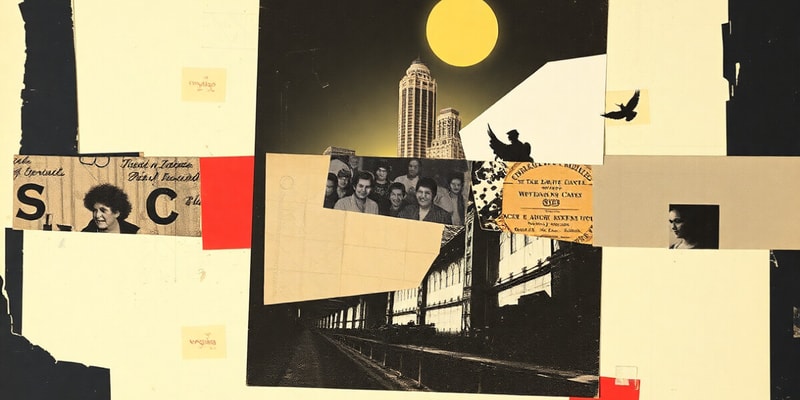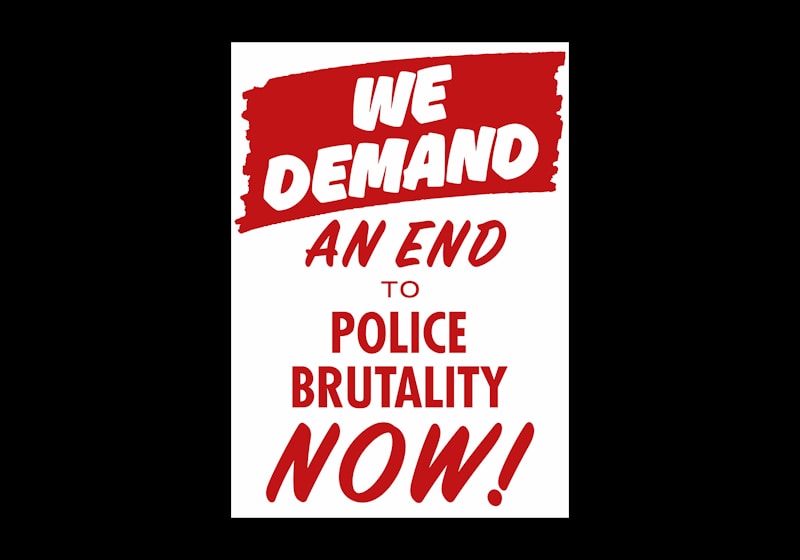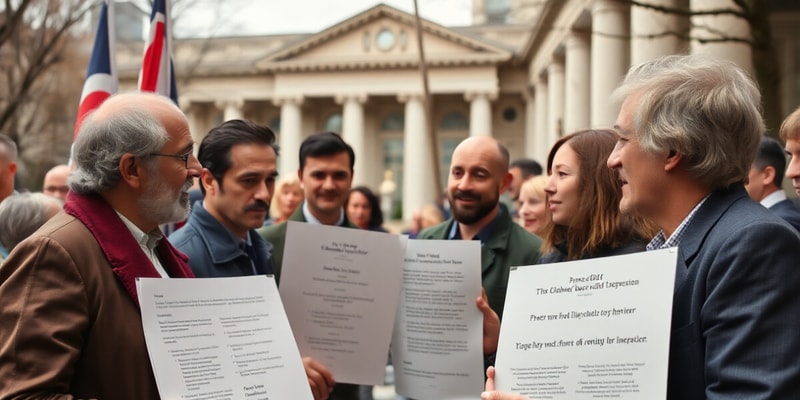Podcast
Questions and Answers
Who appointed the committee for freedom of expression in July 2014?
Who appointed the committee for freedom of expression in July 2014?
The University of Chicago prioritizes comfort over challenges to its members’ ideas.
The University of Chicago prioritizes comfort over challenges to its members’ ideas.
False
According to President Edward H. Levi, what is the college's 'inheritance'?
According to President Edward H. Levi, what is the college's 'inheritance'?
freedom of inquiry
In 1968, President Edward H. Levi emphasized the right to explore or question any idea without __________ or censorship.
In 1968, President Edward H. Levi emphasized the right to explore or question any idea without __________ or censorship.
Signup and view all the answers
What did President Robert M. Hutchins argue about engaging with opposing viewpoints?
What did President Robert M. Hutchins argue about engaging with opposing viewpoints?
Signup and view all the answers
Match the following statements with the respective university presidents:
Match the following statements with the respective university presidents:
Signup and view all the answers
The University may restrict expressions that are considered genuine threats.
The University may restrict expressions that are considered genuine threats.
Signup and view all the answers
What is the primary goal of the committee for freedom of expression at the University of Chicago?
What is the primary goal of the committee for freedom of expression at the University of Chicago?
Signup and view all the answers
What should the University do to ensure that expression does not disrupt ordinary activities?
What should the University do to ensure that expression does not disrupt ordinary activities?
Signup and view all the answers
Members of the University's committee can obstruct speakers holding opposite viewpoints.
Members of the University's committee can obstruct speakers holding opposite viewpoints.
Signup and view all the answers
What are the three components that shape human response according to the content?
What are the three components that shape human response according to the content?
Signup and view all the answers
Beliefs are convictions based on __________, cultural, and/or religious views.
Beliefs are convictions based on __________, cultural, and/or religious views.
Signup and view all the answers
Match the following concepts with their definitions:
Match the following concepts with their definitions:
Signup and view all the answers
What does critical thinking help combat according to the content?
What does critical thinking help combat according to the content?
Signup and view all the answers
The University seeks to suppress debate and deliberation when ideas conflict.
The University seeks to suppress debate and deliberation when ideas conflict.
Signup and view all the answers
Without a vibrant commitment to free and open inquiry, a University __________.
Without a vibrant commitment to free and open inquiry, a University __________.
Signup and view all the answers
Study Notes
University of Chicago's Commitment to Freedom of Expression
- The University of Chicago has a long-standing commitment to freedom of expression as a fundamental part of its culture.
- This commitment was formalized in the Chicago Statement, drafted in 2014, which articulates the University's dedication to "free, robust, and uninhibited debate and deliberation".
- The University believes that freedom of speech is essential for its very existence and that engaging with opposing viewpoints, even those considered offensive or unwise, is crucial for intellectual growth.
- Past University leaders, including Presidents William Rainer Harper, Robert M. Hutchins, Edward H. Levi, and Hanna Holborn Gray, have all emphasized the importance of free speech and inquiry for the University's mission.
Limitations to Freedom of Expression
- The University acknowledges that there are limitations to freedom of expression.
- Expression that violates the law, falsely defames individuals, constitutes genuine threats or harassment, invades privacy, or disrupts the University's functioning can be restricted.
- The University may regulate the time, place, and manner of expression to ensure it doesn't disrupt the University's activities.
University's Responsibility
- The University recognizes that members of its community may hold differing viewpoints and that it's not the University's role to shield them from ideas they disagree with.
- While the University values civility, it emphasizes that addressing civility concerns should never come at the expense of free expression of ideas.
- The University's responsibility is to create an environment where individuals can engage with diverse perspectives through debate and deliberation, even when those perspectives are challenging or controversial.
- The University is committed to protecting the right to free speech, even if it faces opposition from external sources.
Critical Thinking and Values
- Critical thinking involves going beyond accepting information at face value and engaging in critical evaluation.
- It encourages critical thinking and combats tribalism (the "us versus them" mentality).
- Attitudes, beliefs, and values influence how individuals respond to the world around them, shaping their behavior.
- Attitudes are predispositions to respond in a certain way.
- Beliefs are convictions based on educational, cultural, or religious influences.
- Values are fundamental principles that guide an individual's outlook and actions.
Studying That Suits You
Use AI to generate personalized quizzes and flashcards to suit your learning preferences.
Description
Explore the University of Chicago's commitment to freedom of expression as a cornerstone of its academic culture. This quiz delves into the origins of the Chicago Statement and discusses the balance between robust debate and the limitations on expression within the university setting.




